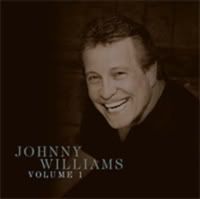 Andre Williams began his career in music singing with groups like The Cavaliers in Chicago on creatively extended weekend furloughs from the Navy, where he served alongside a young Redd Foxx, and when he was discharged for being only 15, he tried his fortunes in Detroit - at the little Fortune Records label, located behind a barbershop.
Andre Williams began his career in music singing with groups like The Cavaliers in Chicago on creatively extended weekend furloughs from the Navy, where he served alongside a young Redd Foxx, and when he was discharged for being only 15, he tried his fortunes in Detroit - at the little Fortune Records label, located behind a barbershop.
Here is where he gained his opportunity to gain experience of song-writing, and more importantly, of studio production: "...not only figuring out how records was made, it brought me to the realization that I could write! I didn't have no prior musical training, but I could put those damn songs together in five or ten minutes."
Andre got busy creating dozens of hit records, and he began each with the same concept in mind: " I'll tell you somethin' fellows, the first line of communications was the drums. That was in Africa, the Congos, the Mongos, and all them 'gos. When they was doin' communications, it was with the drums. So if I could get a drum rhythm which captivates people and put a hell of a story on top of it, I can't lose. And that's where I went."
That was the concept behind such hits at Fortune as Bacon Fat and Jail Bait. Recorded in 1957, they stand out for their take on the seamy side of life, and for Williams vocal delivery. How did Bacon Fat's lyric come about?:
"When I came up with "Bacon Fat" I was travelling from Detroit to Memphis. That's when I knew that I had to come up with a gimmick. So I stopped in Memphis and I got an egg and bacon sandwich - on toast! I'm driving and a lot of places where we used to travel, it was only a two lane highway so you'd see the cotton pickers on both sides and I'm driving and [starts tapping a beat on his thigh, starts humming] "Down in Tennessee... and the name of the dance is..." and I had the sandwich in my hand and there it came, "The Bacon Fat!"
As for the talking style, often cited as a forerunner of rap, it came partly from necessity, and partly from Andre spotting how to make his own mark: "With all these guys singing acapella, I knew I couldn't cut the mustard with that. I've always been a survivor; I've always been able to look ahead and see disaster coming. I said to myself, "Andre, you gon' have to come up with a gimmick, or these people are gonna spot you, and you gonna go down the tubes, because you cannot sing like these people. You ain't no Clyde McPhatter, you ain't no Nolan Strong, you ain't Pookie Hudson, you cannot sing like these guys. You gotta come up with somethin'...Nobody knew that I was gonna talk this record...They pressed the record and, bingo, that was it! I said, "Okay, now I got it; now the only thing I got to do is talk about all these bad times that I had, and I should be able to have me a lengthy career."
Sadly, according to the research of Marv Goldberg, who has interviewed many of the people involved, Bacon Fat did not lead to fame and fortune for all of its participants. For the singing group The 5 Dollars, for whom Andre was supposedly a nominal fifth member, and who had written the tune and sung the backing vocals, it threw fat on the fire in their relationship with Fortune. When the record actually was released, it was no longer Andre Williams and The Five Dollars (or even 'The Don Juans', the pseudonym Andre had encouraged them to adopt for some of their recordings and shows - wearing handkerchief masks) but Andre Williams & His New Group - and the backing voices were somebody else. They belonged to another Detroit group, The Dexatones. The original take with the 5 Dollars does somewhere exist, since Fortune Records used to keep the tapes running constantly to capture anything they might use for a quick release. However, the version we all know is the one released on Columbia/Epic.
In 1961, he met up with Berry Gordy, and was hired to act as both an A&R man, writer and producer. It seems to have been a kind of love-hate relationship!:
"I could never conform to his way of doing business, and I could never be a yes-man and suck up to him, so he fired me! But when he'd fire me, then he'd get a guilty conscience or something, and he call me back. I'd go back and work maybe six or seven months, then mess up again and he'd fire me again …" Despite the temporary disagreements over business, Gordy could not deny the genius that Andre brougth to Motown, and Andre produced dozens of hits for the likes of Mary Wells, The Contours, Stevie Wonder, and later for groups like The Chi-Lites.
 So when Andre Williams knew when he encountered Alvin Cash and his brothers in the Budland Dance Club, he knew that he had another vehicle for his unique style of rhythm-heavy, direct vocals r&b, and the Cash brothers should have realised their good fortune. Sadly, it seems that Alvin Cash didn't feel the same about his mentor. Andre Williams explains in an interview with Joss Hutton for furious.com in 2001: " I wrote the song ["Shake A Tailfeather"] originally for the Five Du-Tones, a vocal band and I also recorded it with Alvin Cash (and the Registers). I also did "Twine Time" with him. When I cut Alvin and I got a hit on him, the same way the American system works, the white boys moved in and he chose a white producer. You know, "We're gonna make you a star, why don't you go with us?" and then, when comes session time, Alvin doesn't want Andre to produce it. What a dumb motherfucker! I mean, I would've always stuck with the cat that got me there in the first place! But he wanted to go with them. Alvin needs producing 'cause there's no talent there, he's just a voice on a record you know!" Even if Alvin didn't realise what Andre could do with a record, others like Berry Gordy, watching a Williams song hit for another label, certainly did!: "Berry'd send a telegram sayin', "Come back to Detroit!" (laughs) You know? Everytime I'd catch a hit like "Twine Time," he'd send for me, because he didn't want his soldiers out there. He was a selfish cat."
So when Andre Williams knew when he encountered Alvin Cash and his brothers in the Budland Dance Club, he knew that he had another vehicle for his unique style of rhythm-heavy, direct vocals r&b, and the Cash brothers should have realised their good fortune. Sadly, it seems that Alvin Cash didn't feel the same about his mentor. Andre Williams explains in an interview with Joss Hutton for furious.com in 2001: " I wrote the song ["Shake A Tailfeather"] originally for the Five Du-Tones, a vocal band and I also recorded it with Alvin Cash (and the Registers). I also did "Twine Time" with him. When I cut Alvin and I got a hit on him, the same way the American system works, the white boys moved in and he chose a white producer. You know, "We're gonna make you a star, why don't you go with us?" and then, when comes session time, Alvin doesn't want Andre to produce it. What a dumb motherfucker! I mean, I would've always stuck with the cat that got me there in the first place! But he wanted to go with them. Alvin needs producing 'cause there's no talent there, he's just a voice on a record you know!" Even if Alvin didn't realise what Andre could do with a record, others like Berry Gordy, watching a Williams song hit for another label, certainly did!: "Berry'd send a telegram sayin', "Come back to Detroit!" (laughs) You know? Everytime I'd catch a hit like "Twine Time," he'd send for me, because he didn't want his soldiers out there. He was a selfish cat." Andre Williams took that genius for hit-making on to Chess and Duke-Peacock before things got out of his control after a gruelling 18-month stint working with Ike Turner led to a spiral of drug addiction, and eventually saw Andre homeless. In the mid 90s, Andre Williams was back recording. On his latest album in an ongoing career, Andre hired guitarist Bobby Quine. Bobby Quine is quoted as saying: "Now I've worked with two geniuses: Lou Reed and Andre Williams."
Funny he should say that...
Williams idiosyncratic vocal delivery seems to have had an influence in one of the unlikeliest of places. A young guitar player from Long Island, soon to make his way to New York City to become a company songwriter for Pickwick Records in the Brill Building, absorbed a great deal of ideas and techniques from listening to songs like Bacon Fat and Jail Bait. Lou Reed, soon to form the avante-garde rock band The Velvet Underground, adopted some of Andre's style for almost improvisational lyrics, lacsadaiacal delivery, slurring and deadpan asides. You can hear Andre's laid back 'Lord have mercy!' from Bacon Fat echoed on Lou's 'Temptation Inside Of Your Heart' along with a whole background of extemporisation, and the word association of Jail Bait is echoed in 'Murder Mystery'. 'She looks so good, just like a young girl should' is used by Lou in one of his live numbers 'Sweet Bonnie Brown'. If the only band The Velvet Underground ever wanted to be able to play like was Booker T & The MGs, then Lou wanted to be singing in front like Andre Williams.
 Andre continues recording. The Five Dollars had a well-recieved reunion in 1999. Sadly, in 2006, pianist Joe Weaver, featured on Bacon Fat, passed away.
Andre continues recording. The Five Dollars had a well-recieved reunion in 1999. Sadly, in 2006, pianist Joe Weaver, featured on Bacon Fat, passed away.Well, I've been chewing the fat for long enough. Now it's your turn:
Andre Williams - Bacon Fat (Fortune/Epic) 1957
All Andre Williams quotes are taken from an interview with Joss Hutton for furious.com , and from an interview by Dan Epstein for Ugly Things magazine. John Nova Lomax at Cleveland Scene magazine has also collated together several other Andre Williams interviews from recent years. The story behind the story of the recording of Bacon Fat, and the role of the The 5 Dollars, is revealed in full by Marv Goldberg, in another one of his fabulous R&B Notebooks. 5 Dollars photos belong to Marv Goldberg and to group member Charlie Evans. ALvin Cash photo shared by Mel(andthensome) on SOulful Detroit forum.







